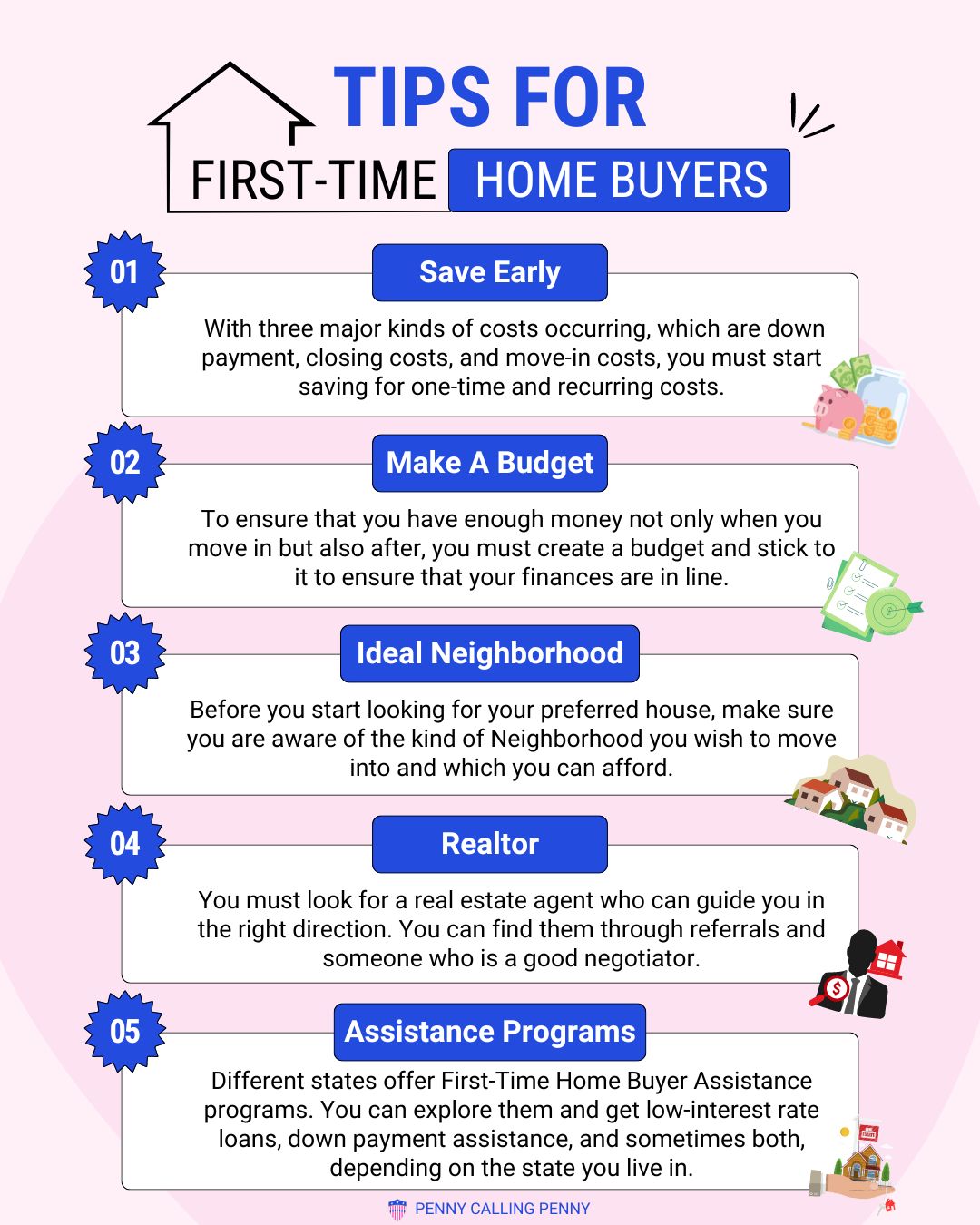Do you remember when you were young, still living with your parents, and you thought there would come a day when you would have your own family and your own house? But when you became an adult, and the reality hit, you discovered that buying a house isn’t as easy as it felt in your make-believe childhood games. But with correct and solid planning, you could own a place of your own and say goodbye to rentals. But exactly how to buy a house? We have got you covered with a step-by-step guide to it.
How Long Does It Take To Buy A House?
When you feel the time has finally come to purchase a house, it is natural to have the question about how long it will actually take for you to purchase and become the owner of a house. According to several sources and research, the process of owning a house takes around 15 weeks to a few months. This time could extend up to a year sometimes as well.
The time it will take to own a house will depend on the time of your loan approval, which might differ from lender to lender. How long you take to decide or when you get the house of your choice may also factor in.
Qualification For First-Time Buyers
There are certain benefits that first-time buyers enjoy. But before we move on to the benefits of being a first-time buyer, you must understand there are some qualifications that decide if someone is a first-time buyer and if they qualify for benefits. These qualifications are set by the U.S. Department of Housing and Urban Development (HUD). Thus, someone who meets these conditions is a first-time buyer:-
1. A person who has never possessed a main residence for three years. If, as a single person, you have possessed a home, but now you have a partner and they have not, then you can be first-time buyers together.
2. A person who is a single parent and previously possessed a house with their partner could now be a first-time buyer when they purchase alone.
3. A homemaker who is now displaced and who has possessed a house with their partner only.
4. A person who possessed a principal house which was not permanently affixed to a permanent foundation which was in regard with applicable regulations.
5. A person who has possessed a house before that was not in compliance with local, model or state building codes. And also can’t be brought into compliance for a cost that is less than the permanent structure.
Benefits For First-Time Buyers
Now we move on to benefits that first-time buyers get if they qualify for the conditions of first-time buyers as per the HUD. You could have some tax breaks and federal loans if you are a first-time buyer and do not have the general minimum down payment- 20% of the purchase price of a usual loan.
You could also have the advantage of down payment assistance or even the closing cost assistance programs if you are a first-time buyer. The state governments or NGOs support these programs. They offer you funding for your down payments or closing costs to assist you in your dream of buying a house.

Requirements Before Buying A House
Before we move on to how to buy a house, it is essential to know the necessities that help you buy a home. Because as much of an excellent American dream as it is to buy a house, it takes work to plan the same. The foremost has to be for you to ask why you want to buy a home.
This question will help you understand your intent and your need to purchase a house. If you are getting married, you will require a home that is perfect for when you have a baby. But if you already have a kid and are expanding your family, look for a more extensive property to accommodate more family members.
Further, if you are retiring, consider a house that is easy to maintain and old-age friendly, like without stairs. If you are a single person finally getting your own home, you might want a bachelor pad in an area quite different from what families need. Thus, here are a few requirements you must clear out before buying a house.
Down Payment
Down payment refers to the money you would be required to pay when you decide to buy a house. This will offset the amount you would be required to borrow. You could have around 20% to put down, which will give you the best rate available. You could also leave out private mortgage insurance, which adds to your monthly costs in the long term.
Further, if you need more money, you could look at a Federal Housing Administration loan. You can check their eligibility criteria, and if you qualify, you could get a loan that requires a down payment of only 3.5%. There is 100% financing available for veterans of the US Armed Forces through Veterans Administration-backed loans.
Moreover, the Federal Housing and Urban Development (HUD) also offers a down payment assistance program for first-time buyers. You can apply for this program if you are not able to get the down payment together. The money and rules for acquiring it could differ from state to state.
Lender
Before you are sure about purchasing a house, you must have a lender you can trust that doesn’t charge an exorbitant interest rate. You could begin with the bank where you already have a bank account. You could get a competitive rate since you are already in business with them.
You can also look at credit unions like Navy federal credit union, small community banks or online lenders; if you find any of them giving you loans at competitive rates, you should think before ruling them out. But make sure they are legit banks.
If you can get a pre-approved loan, this might give you an edge when you make an offer.
Credit Score
Before you decide which lender to go with, you must also ensure your credit score is up to the mark. The credit score will help lenders understand how likely you are to repay their loan. If you have a good credit score, your chance of getting loans from good lenders increases—and that also at competitive rates.
Finding a lender willing to provide a loan might be challenging if your credit score needs to be in a better category. But if you start paying off your bad debts, such as credit cards, and then avoid taking on any new debts for some time, your credit score could improve in the following months, and then you could apply for a loan for your house.
Debt-to-Income
This will represent the percent of income that will go to paying off the debt every month. The interest will also go along with the principal amount fixed, so this must be low. Because then you would be able to meet the mortgage requirements better.
To ensure that you can pay off the mortgage and that your debt-to-income ratio is low, you must not have a lot of debts before you take out the mortgage, and you could also try to substantiate your income with some passive income or higher monthly incomes.
Closing Costs
This is the charge or fees that you would have to pay to different parties when you finalize and close a house or offer. The costs vary, so your lender could give you a better idea about the closing costs. But the average is between 2% and 5% of the purchase price of the house.
Pre-Approval
You are advised that your mortgage has been pre-approved. With the required documents you could apply for a pre-approval mortgage with your lender. This will help you to save time at the time of actually purchasing your chosen house.
Pre-approval is faster than the actual mortgage approval process because, unlike an actual mortgage, pre-approval is not a binding document. Hence, it is optional for the bank to verify each of the papers.
Guide To Buy A House

As a first-time buyer, you may not be aware of the steps you need to follow to ensure that you buy an affordable house and the house you have always wanted. Here is a guide to assist you in making an informed choice about buying a home.
1. Affordability
Before looking for your perfect house, you must know how much you can afford to take out a mortgage and repay. Your pocket size will help you decide the size of your home. The monthly cost you will have to repay wouldn’t only be the mortgage principal, interest, property tax, and homeowners insurance.
2. Real Estate Agent
Now that you know how affordable you are, you should start by looking for a real estate agent to help you find your perfect house. When you are buying a home, a real estate agent could be your guide. You could talk to friends and family or look online for a trusted real estate agent.
3. House Hunting
You might look at pictures of a house listed for sale online, which could help you shortlist, but your next step should be physically visiting these houses. House hunting will help you find a home in your preferred locality or with the amenities you were looking for.
When starting your house hunt, you must know what kind of house you want. Being as specific as you can to your real estate agent will make it easier to find the perfect home. Also, you must be aware of the amenities or priorities on your list that are most important because finding a house with all of your preferences might be challenging.
4. Offer
After you are done with house hunting, and if you have a family and they like the house too, you could make an offer for the home of your choice. Consult your real estate agent if you want more than one option. They could help you compare the prices or other advantages.
After all the deliberations, when you make an offer and the seller provides you with a counteroffer for a higher price, you could either negotiate and make another offer or leave the deal. And if the seller accepts your offer after all the deliberations and negotiations, congratulations on almost owning a house.
5. Walk Through
Even if the seller has already accepted your offer, you should take a final walk-through of the entire house before you finally sign the contract or pay the downpayment. This will help you to disperse any cloud and make the right choice.
This walk-through might also bring in some things that could have been improved in the excitement of the first-time buyer. You could also get your inspection checklist.
6. Inspection
Now, while going through your final walk down the house lane, you should bring in your inspection checklist and look for any repairs or problems that need to be solved. These could be mechanical, structural, or anything else.
These inspections will help you decide how to proceed with your closing process. You could get these repairs from the owners, or if the inspection contingency occurs, you might even want to back out. You could get a home inspector and would want to complete the inspection within 10 to 14 days or at the earliest, depending on the contract terms.
7. Appraisal
This is different from home inspection. You do the home inspection yourself, but the lender does the home appraisal. The lender would want to check the home to ensure they provide you with the amount your house is worth. The appraisal compares the amount you bought with the prices of similar houses.
The catch, however, is that you would also have to pay for the appraisal. Even if you purchase the house with cash, you might still want to hire an appraiser to ensure your investment is worth every penny.
8. Insurance
It might sound a little off when you are advised to buy homeowners insurance for a house that isn’t yours yet. This is because, for many lenders, the condition of providing you with a mortgage is homeowners insurance. If you are looking for the best Homeowner’s Insurance, Amica is one of your choices.
Further, the coverage should be such that your entire home gets a fully replaceable option, which might differ from your purchase price or the appraised amount. You should also ensure the policy comes into action on your closing date.
9. Financing
Even if you have a pre-approval, it is different from official approval. This is the underwriting process; you should keep your finances and credit in line. You should avoid starting new credit lines and purchasing anything significant or major until the paperwork is complete. You could also avoid changing your job before the closing is done.
10. Final Tour
After all the financial formalities, you still want to take the final tour of the house, check for the final time, be sure about its condition, and look for any damages if left before closing.
11. Closing
Finally, after all the hustle, the time has come when you could close on the offer and get the keys to your dream house. You would want to have the transfer of ownership with simple signatures. The presence of the title insurance company’s representative during the signing of the documents would be necessary, or you could also do with e-signatures varying according to your state of residence.
Conclusion
Purchasing your dream house is easier than it seems, but rather just a game of planning and managing your finances. You must be sure of your decision to buy a house because even after owning the house, the cost of the home continues to increase. And if you have enough money for a one-time purchase, consider future recurring costs. But it is also easy to take care of if you have a stable job and regular income.
Our guide intends to assist you in making an informed choice and, after you decide to purchase the house, walk you through the entire process together.
Find this helpful? Share it on Pinterest, LinkedIn and Facebook for your dear ones. Also, Sign up for our newsletter! You’ll get articles like this (and so much more!) delivered straight to your inbox.
Did you take our Reader Survey? If not, it only takes 1 minute and you can take our survey here.










